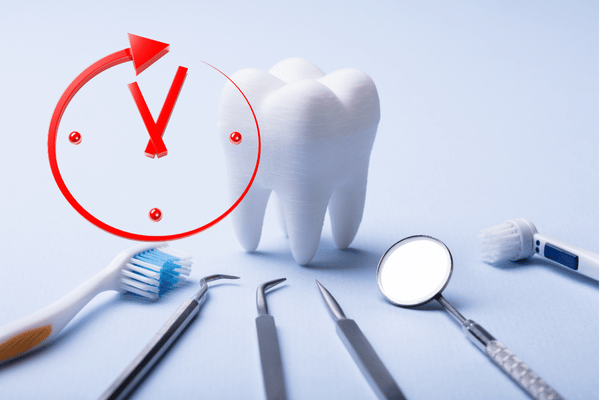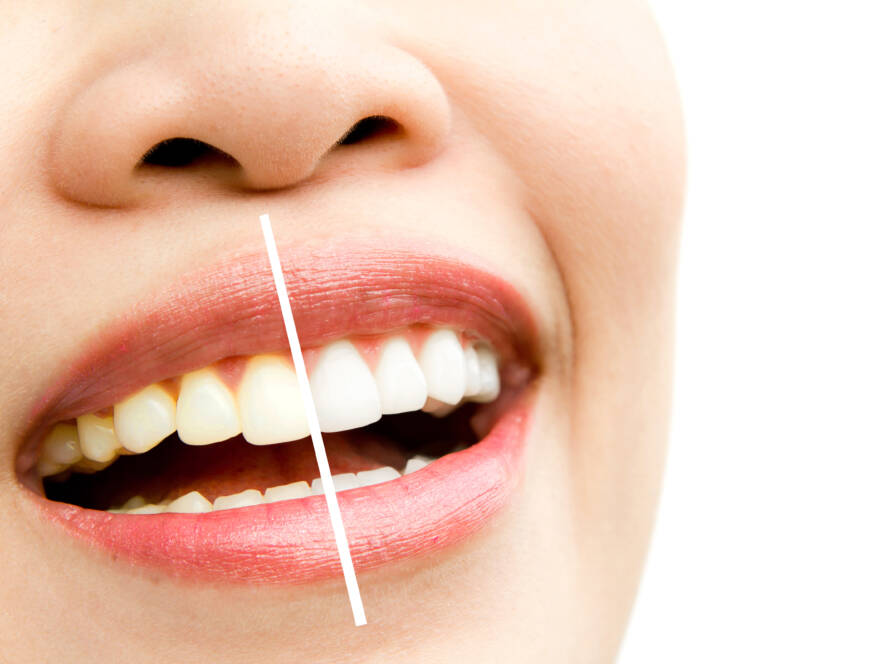Dealing with a toothache at night can be a challenging and uncomfortable experience. The throbbing pain can disrupt your sleep and leave you searching for quick relief. The relentless pain demands immediate attention, prompting a quest for rapid relief. In this guide, we unravel the mystery of nocturnal toothaches, offering insights into potential causes. As we explore effective remedies, discover actionable steps to alleviate discomfort and ensure a restful night’s sleep. From simple saltwater rinses to the application of nature’s analgesic, cloves, we delve into accessible solutions. Join us on this journey to reclaim peaceful nights and conquer toothache woes with practical, home based strategies.
Understanding the Causes:
Before we embark on the journey of alleviating your nocturnal toothache, let’s unravel the potential causes that may be contributing to your discomfort. Toothaches can manifest from a variety of issues such as cavities, gum infections, or the less discernible yet equally vexing, cracked tooth. Gaining insights into the origin of the pain is the first step toward choosing the most effective and tailored remedy.
If you say “extreme tooth pain can’t sleep”, you can try the following methods.
10 Ways to Treat a Toothache at Night
1- Rinse with Warm Saltwater
Rinsing with warm salt water is a simple yet effective home remedy for relieving toothache. The process involves dissolving a teaspoon of salt in warm water and using the solution as a mouthwash. The warmth of the water provides soothing comfort, while the salt acts as a natural disinfectant, helping to reduce inflammation and cleanse the affected area. Gargling with this solution for about 30 seconds can aid in minimizing pain and promoting oral health. This method is widely recommended for its accessibility and ability to provide immediate relief by addressing the root causes of tooth discomfort.
2- Apply a Cold Compress
Applying a cold compress is a simple yet effective method for alleviating toothache. To implement this remedy, one can place a cold pack or ice wrapped in a cloth against the cheek, adjacent to the affected tooth. The cold temperature helps numb the nerves in the area, leading to a temporary reduction in pain and swelling. This vasoconstrictive effect is particularly useful for managing dental discomfort caused by inflammation or injury. It is important to wrap the ice or cold pack in a cloth to prevent direct contact with the skin, which can prevent potential ice burns. Applying the cold compress for short intervals, around 15 minutes at a time, can provide a soothing and analgesic effect, offering relief from nighttime toothaches.
3- Over the Counter Pain Relievers
Over the counter (OTC) pain relievers are readily available medications that can be purchased without a prescription, providing a quick and accessible solution for managing toothache. Common options include ibuprofen and acetaminophen. Ibuprofen, a nonsteroidal anti inflammatory drug (NSAID), helps reduce inflammation and alleviate pain. Acetaminophen, while not an NSAID, is effective in relieving pain and reducing fever.
These medications work by interfering with the production of certain chemicals in the body that contribute to pain and inflammation. It’s essential to follow the recommended dosage guidelines and consult with a healthcare professional if there are any concerns or pre existing conditions. OTC pain relievers offer a convenient way to address toothache symptoms, providing relief for individuals experiencing discomfort, including during nighttime episodes.
4- Topical Anesthetics
Topical anesthetics are localized pain relieving agents that are applied directly to the surface of the skin or mucous membranes to numb the area temporarily. In the context of dentistry and toothache relief, topical anesthetics are often utilized to alleviate discomfort on the gums or oral tissues. These anesthetics commonly contain active ingredients such as benzocaine or lidocaine, which block nerve signals in the targeted area, leading to a temporary loss of sensation. They come in various forms, including gels, creams, ointments, or patches.
Applying topical anesthetics to the affected gum or oral region can provide quick relief by numbing the nerves, making them a valuable tool in managing localized pain associated with toothaches. It’s important to use these products as directed and consult with a healthcare professional if there are any concerns or specific health conditions.
5- Cloves and Clove Oil
Cloves and clove oil are natural remedies known for their analgesic and anti inflammatory properties, making them effective in alleviating toothache. Cloves contain eugenol, a natural anesthetic, while clove oil can be applied to a cotton ball and gently placed on the affected tooth or gums for pain relief. Eugenol not only helps numb the area but also possesses antimicrobial properties, aiding in reducing bacteria and promoting oral health. This natural remedy offers a soothing solution for toothaches, providing a temporary but often effective relief from pain and discomfort.
6- Peppermint Tea
Peppermint tea is a natural remedy that can help alleviate toothache discomfort. Known for its mild numbing properties, peppermint tea offers a soothing effect on oral tissues. To use this remedy, brew a strong peppermint tea, let it cool, and swish it around in your mouth. The menthol in peppermint has a mild anesthetic effect, providing temporary relief from pain. Additionally, peppermint tea’s anti inflammatory properties can help reduce swelling and promote a sense of oral comfort. This simple and accessible solution can be a valuable part of home care for managing toothache symptoms.
7- Garlic
Garlic, renowned for its culinary uses, also serves as a natural remedy for toothache. With potent antimicrobial and anti inflammatory properties, garlic can aid in reducing oral bacteria and alleviating pain. To apply this remedy, crush a garlic clove and mix it with a pinch of salt to form a paste. Gently apply the paste to the affected tooth or gums. Garlic’s allicin compound, responsible for its medicinal properties, contributes to the numbing effect and may help combat infection. While garlic provides temporary relief, it is essential to consult with a healthcare professional for persistent toothache issues or underlying dental concerns.
8- Hydrogen Peroxide Rinse
A hydrogen peroxide rinse is a home remedy for toothache and oral hygiene. By diluting hydrogen peroxide with water, you create a mouthwash with antibacterial properties. Gargling with this mixture for about 30 seconds helps reduce bacteria in the mouth, promoting gum health and potentially easing toothache discomfort. Hydrogen peroxide also assists in maintaining oral hygiene by preventing infection and inflammation. However, it’s crucial to use the proper dilution and not swallow the solution. Consultation with a dentist is advised for persistent toothache issues or before integrating hydrogen peroxide rinses into a regular oral care routine.
9- Vanilla Extract
Vanilla extract, primarily known for its culinary uses, can also be used as a home remedy for toothache. Its alcohol content provides a mild numbing effect when applied to the affected tooth or gums. Soaking a cotton ball in vanilla extract and placing it on the sore area can offer temporary relief by easing pain and providing a subtle calming sensation. However, it’s important to note that vanilla extract is not a substitute for professional dental care, and consulting with a dentist is advisable for persistent or severe toothache issues.
10- Guava Leaves
Guava leaves are a natural remedy known for their potential to alleviate toothache. Chewing fresh guava leaves or applying a crushed guava leaf paste to the affected area can provide relief due to their anti inflammatory and antimicrobial properties. The leaves’ natural compounds may help reduce pain and combat bacteria, promoting oral health. While guava leaves offer a traditional and accessible solution, it’s essential to seek professional dental advice for persistent toothache issues or underlying dental concerns.
How to Prevent a Toothache?
Preventing a toothache involves adopting a comprehensive oral care regimen to ensure optimal dental health. Begin with a consistent routine of brushing your teeth at least twice a day using fluoride toothpaste, focusing on all surfaces for two minutes each session. Incorporate dental floss or interdental brushes daily to remove plaque and debris from between teeth where a toothbrush may not reach.
Regular dental check ups, ideally every six months, are vital for professional cleaning and early detection of potential issues. Professional cleanings help remove built up plaque and tartar, reducing the risk of cavities and gum disease.
Mindful dietary choices play a significant role in prevention. Limit sugary and acidic foods, as they contribute to enamel erosion and decay. Staying adequately hydrated stimulates saliva production, which helps neutralize acids and maintain a healthy oral environment.
In summary, preventing toothaches involves a combination of diligent oral hygiene, regular dental check ups, a healthy diet, and protective measures against teeth grinding. These practices collectively contribute to a robust dental defense, reducing the likelihood of experiencing the discomfort associated with toothaches.















